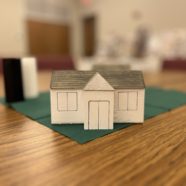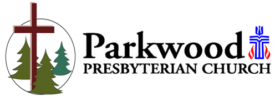
Our Scripture reading this morning comes from the gospel according to Matthew. It’s a short one, just two verses, so let’s zoom out and get a little context.
This whole chapter is full of parables, with Jesus repeating over and over and over again ‘the kingdom of heaven is like…’
It’s like a little bit of yeast, mixed in with a whole bunch of flour – and suddenly the whole thing is leavened. It’s like a treasure hidden in a field – when someone finds it, they go and sell everything to buy that field in order to have the treasure hidden within it.
In the midst of all that, Jesus says this:
Scripture: Matthew 13:31-32
He put before them another parable: ‘The kingdom of heaven is like a mustard seed that someone took and sowed in his field; it is the smallest of all the seeds, but when it has grown it is the greatest of shrubs and becomes a tree, so that the birds of the air come and make nests in its branches.’
There are a LOT of varying interpretations in various Christian circles for this parable – as New Testament scholar Amy Jill Levine notes, “the parable of the mustard seed has put forth so many branches of interpretation that the birds of heaven could build multiple nests and still have room for expansion.”
But this little story, I think, can be much simpler – and much broader – than we might expect.
Someone goes and takes a little tiny seed, and plants it in their field. From that one little itty bitty seed comes a huge shrub, a tree even, so large and spacious that it provides a home for other small creatures – birds, squirrels, worms, bugs. Meanwhile, its leaves and seeds become food and medicine for the humans who cultivate it.
There is a cultural reference to be found here – in the Old Testament, mighty kingdoms and wide-reaching empires are often compared to massive, sturdy trees – cedars and the like. But instead of the towering tree, Jesus tells us the kingdom of God is like…a mustard shrub. A super common plant that was (and still is) slightly invasive.
A little anti-climactic, perhaps. Or is that the point?
As preacher and scholar Tom Long puts it in his book ‘Proclaiming the Parables,’
“In contrast to expectations, God’s kingdom as present in Jesus is impressive, not for its towering height or imposing power as the world defines power, but for its spreading breadth and ample branches, for its healing of the distressed, its cleansing of lepers, and its feeding of multitudes.
The kingdom is not about military muscle, economic supremacy, or political manipulation, not about tall steeples, mushrooming membership rolls, or jaw-dropping church budgets. [The Kingdom of God] displays its divine power by enlarging hospitality and care; the event of the kingdom creates places where the low are brought high, where the drought-plagued land is irrigated by mercy, and where all of the birds of heaven and all of the children of God can find restful shade and place to dwell.”
The more I looked at this parable this week, the more I realized: no matter what angle you look at it from, you will see the care and hospitality of God at work.
We can insert ourselves into this parable anywhere and find ourselves loved and nurtured by God.
As a human community, we are the field where God is planting seeds and growing God’s kingdom. As individuals, we are the itty-bitty seed, one person planted into a community with so much need. As a church family, we are the tree, rooting ourselves in the soil of our communities and reaching for the light of God’s love. As people who need God’s love and care, we are the birds who find shelter and rest in these branches. As keepers and messengers of God’s story and our own stories, we are the farmer scattering tiny seeds and praying for rain.
Here, Jesus tells us that in the kingdom of God, nothing is too small. No kind gesture, no welcoming word, no prayer of need or thanksgiving – nothing is too small.
Like the mustard tree, the kingdom of God is large and far-reaching, but it begins with the smallest of seeds: grocery bags full of donated food, Christmas pageants and concerts, sending cards and offering prayers, worshipping together and Bible studies and small groups and game nights.
At the same time, in these two short verses, we also learn that in God’s kingdom, nothing and no one is too small to be loved and cared for, too small to be seen, too small to be used for good, too small to be amazing, too small to grow.
In our mission statement here at Parkwood, we emphasize this both-and, this give and take of church life, this outward and inward journey we’re on together.
Rooted in Christ’s love, Parkwood Presbyterian Church seeks to grow in love for God and neighbor.
This love is the work of our hearts, to care and be cared for; of our souls, to know and be known, of our minds, to learn and to teach, and our strength – to do justice and sow hope.
Some of us have memories of Parkwood’s ministries stretching back 30+ years, and we thank God for you. Some of us only know the Parkwood that is right here, right now, and we thank God for you, too.
But we can acknowledge that the Parkwood of 1994, the Parkwood of 2004 and 2014, and the Parkwood of 2024 are all different: in each season, we have looked different, we have ministered in different ways, we have different people and activities and God is calling us to different kinds of things. And all of it – what was and what is – is good and worthy of celebration and thanksgiving.
If you’ll permit me to stretch the tree metaphor a little further, I want to tell you a story about the trees and the seasons.
Rev. Jordan Bucey, a pastor from the northeast US, shared this story with me earlier this year at a conference. She says:
“About 14 years ago, in October, a huge blizzard hit New England. … It was eventually referred to as “arbor-geddon” because of the damage it did to the trees. Traditionally in October, there are still many leaves left on the branches, so combined with the weight of so much snow, countless trees were killed, damaged, or just totally fell over. It was a disaster; in many areas, people lost power for days or weeks. Destruction everywhere. Obviously the trees that fell over were dead, with roots pulled up into the sky, but what about the trees still standing?
As time moved from fall into winter, local scientists and arborists explained to the public that there was one sure-fire way to tell if a tree was still alive and ready to keep going or really dead and actually needed to be removed to make room for new things, even if it was still standing. And that way might seem crazy at first.
Here’s the test: the leaves. If the tree was covered in leaves, the tree was dead. But if the tree was bare, the tree was alive. … This may sound totally backwards, but you see the trees that were still holding onto their leaves, weren’t doing what trees were supposed to do in that season; they were holding onto something, unable to change with the season.
But the trees that had shed their leaves and were down to bare brown branches were indeed alive because they knew that the loss of leaves was all a part of the process. Leaves still on branches – dead. Bare branches – alive. A tree’s ability to change with the season and honor its shedding of leaves is essential to its very being. A tree that doesn’t know how to shed and then be “resurrected”- trees clinging to the past- will never make it. A tree’s capacity to honor seasons is essential to its being alive.
Things are not always what they seem at first glance. Nature reminds us that the world is bigger and more mysterious and magical than we could even imagine. Changing with the times can look confusing, but reinvention and resurrection are what we are called to do. It’s literally how God works.”
One little tiny seed becomes a shrub so large it could be a tree – and that tree provides shelter, healing, and nurture.
Friends, the kingdom of God is growing indeed – within us, among us, and through us – in every season. For all that has been, for all that is today, and for all that will be by the grace of God, we give thanks.
Thanks be to God indeed. Amen.

